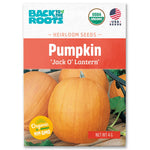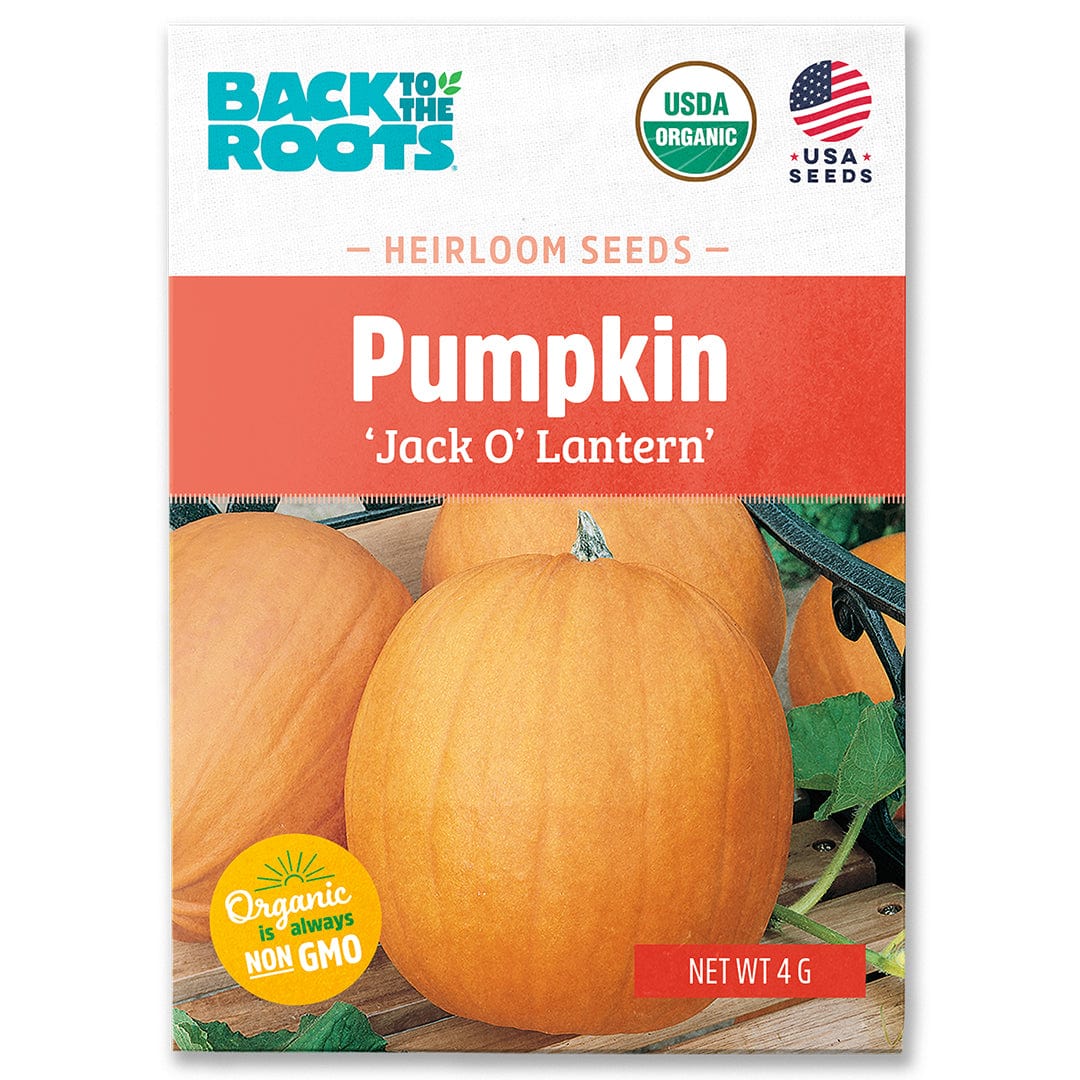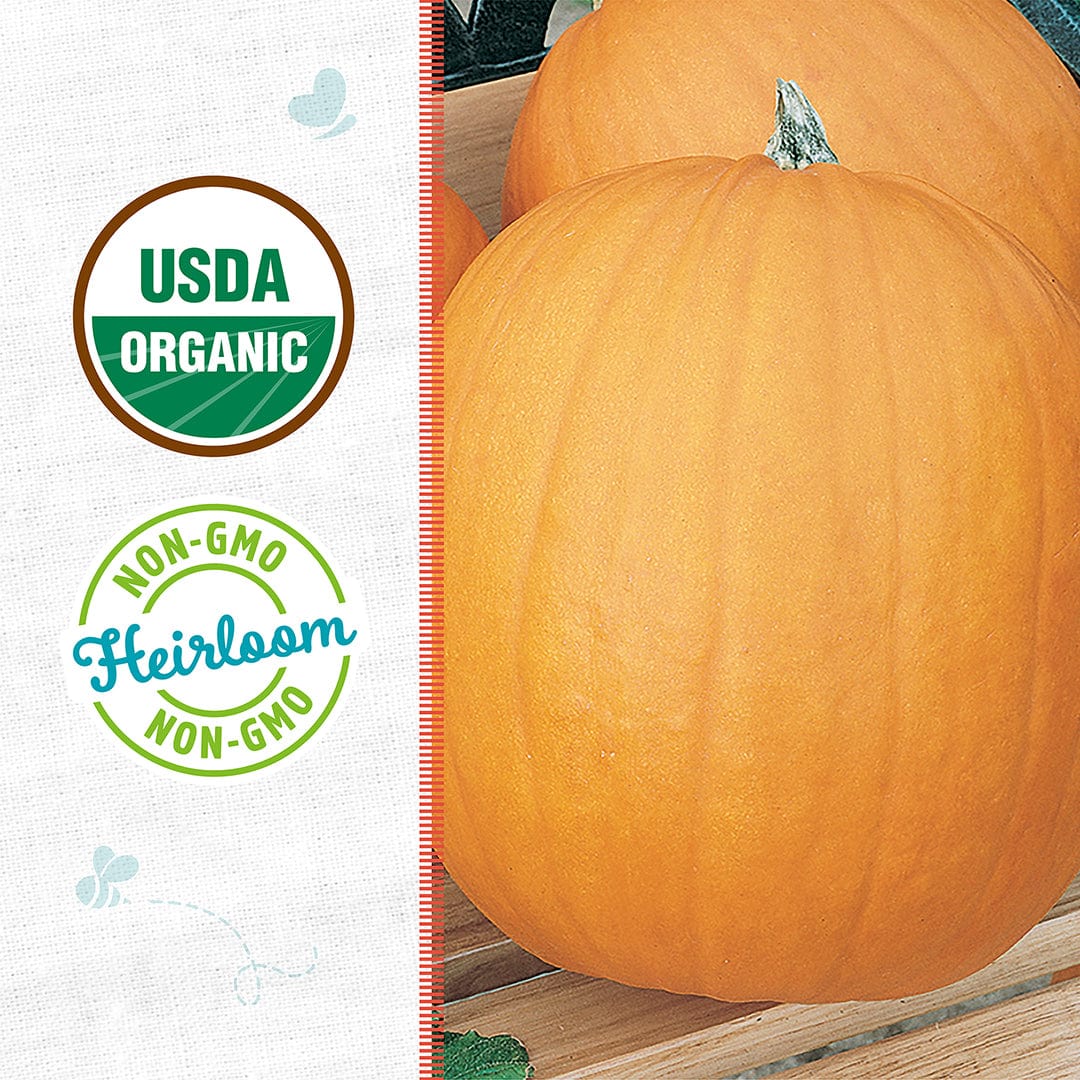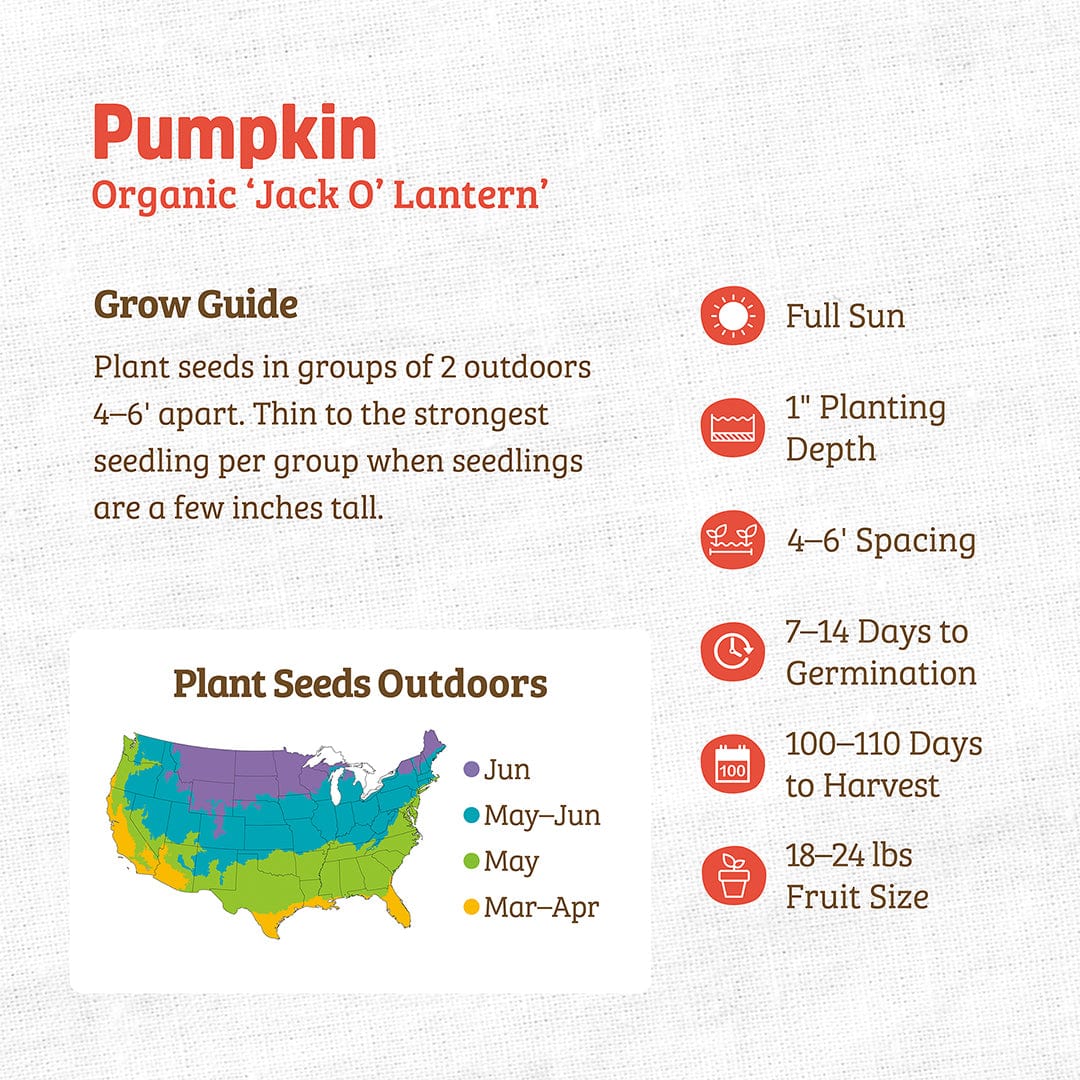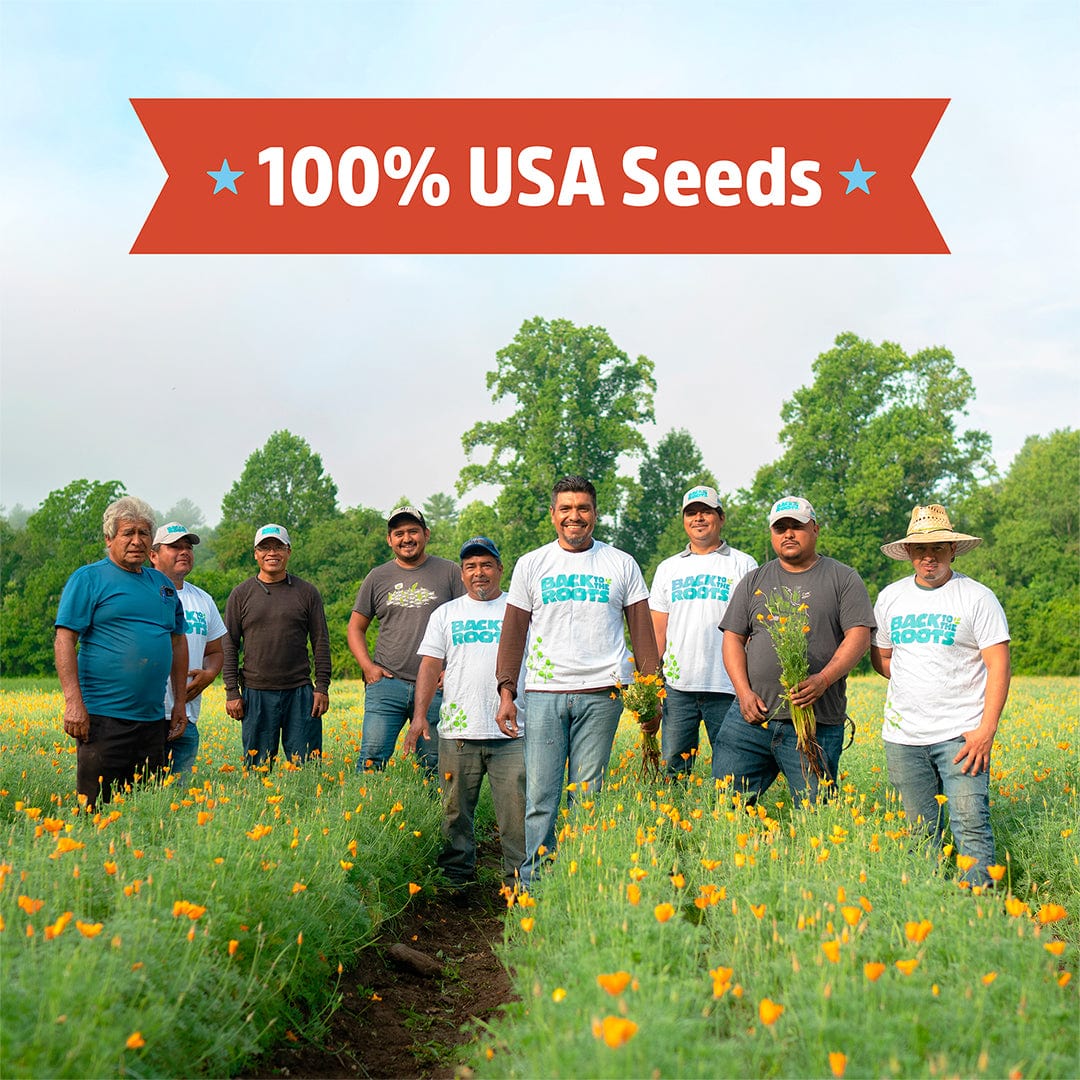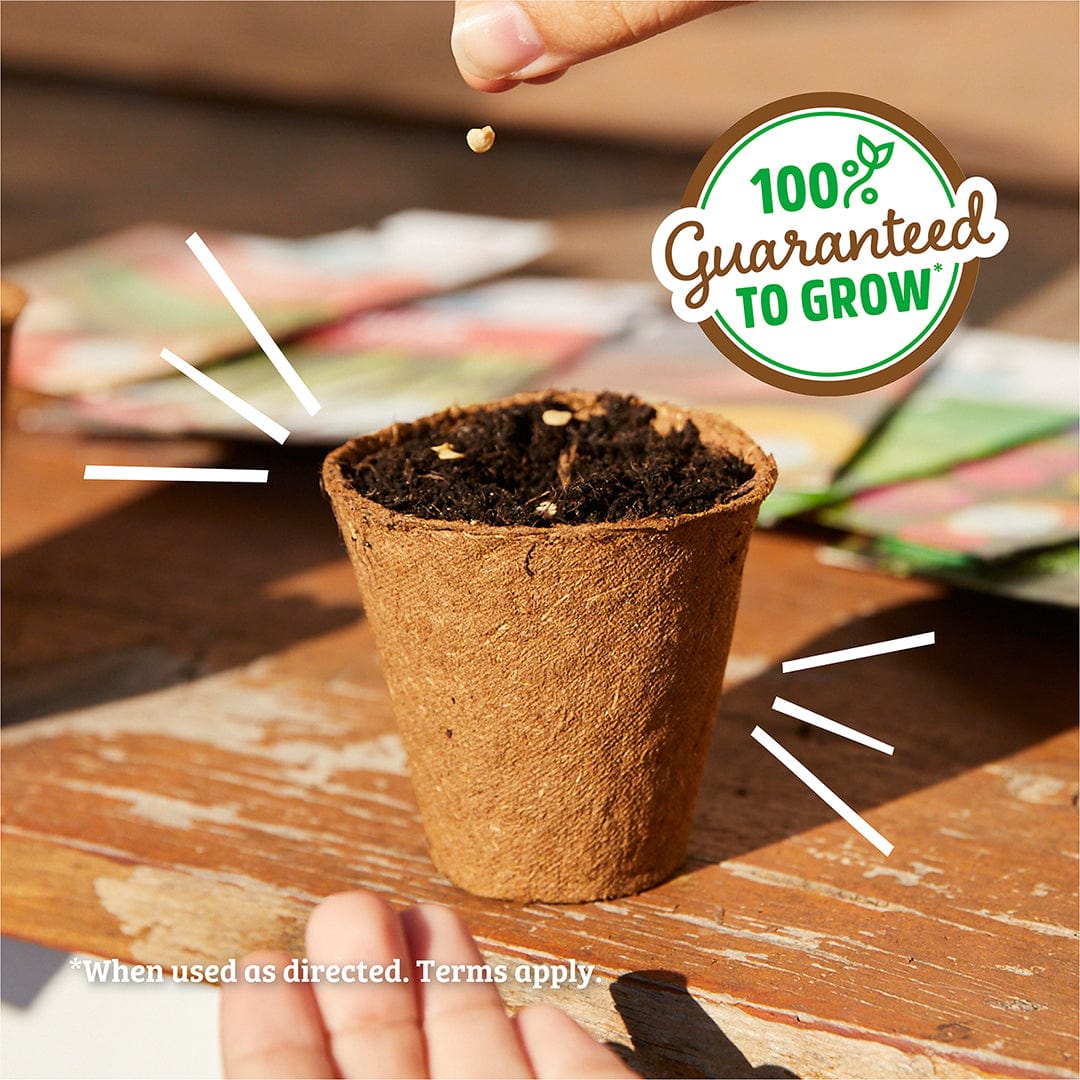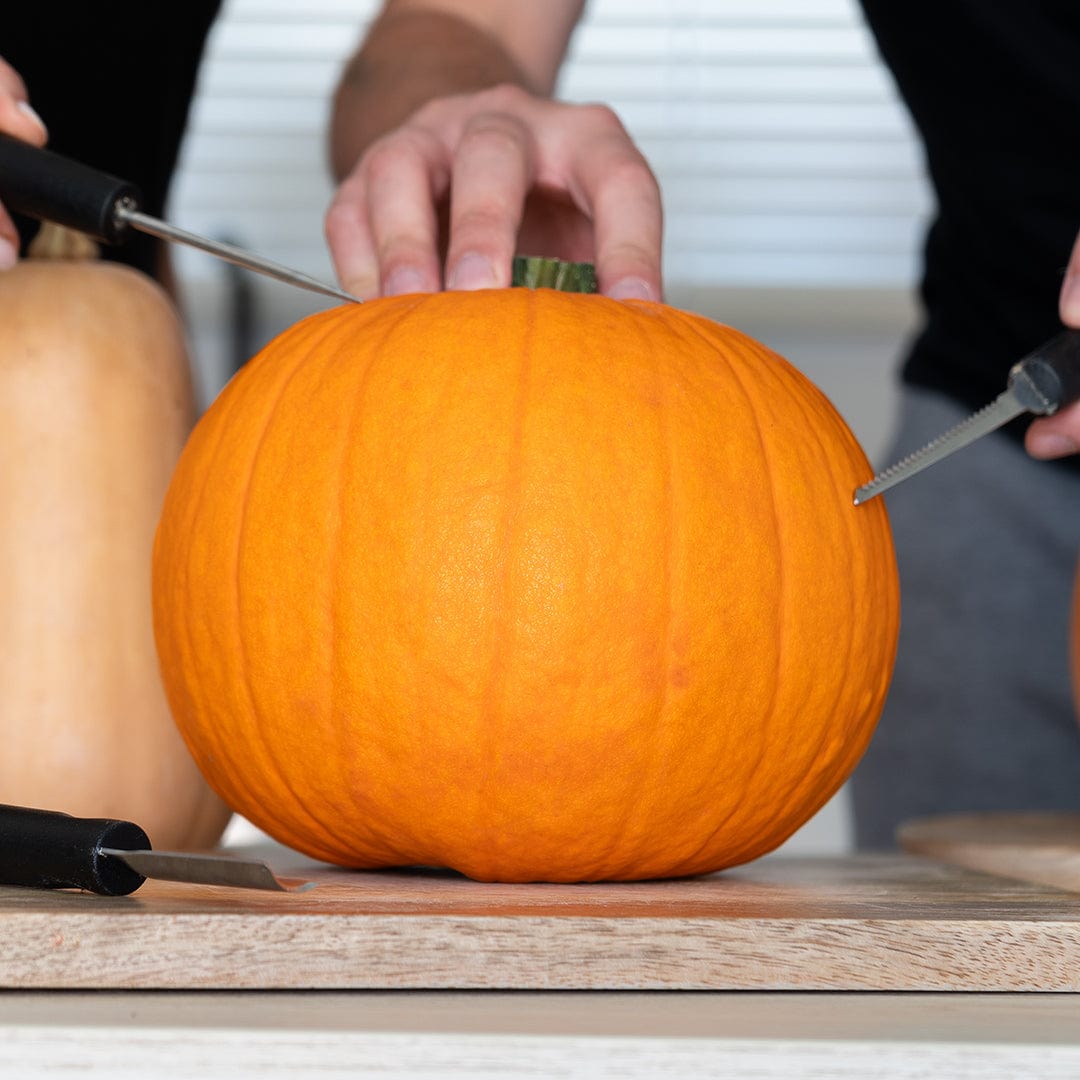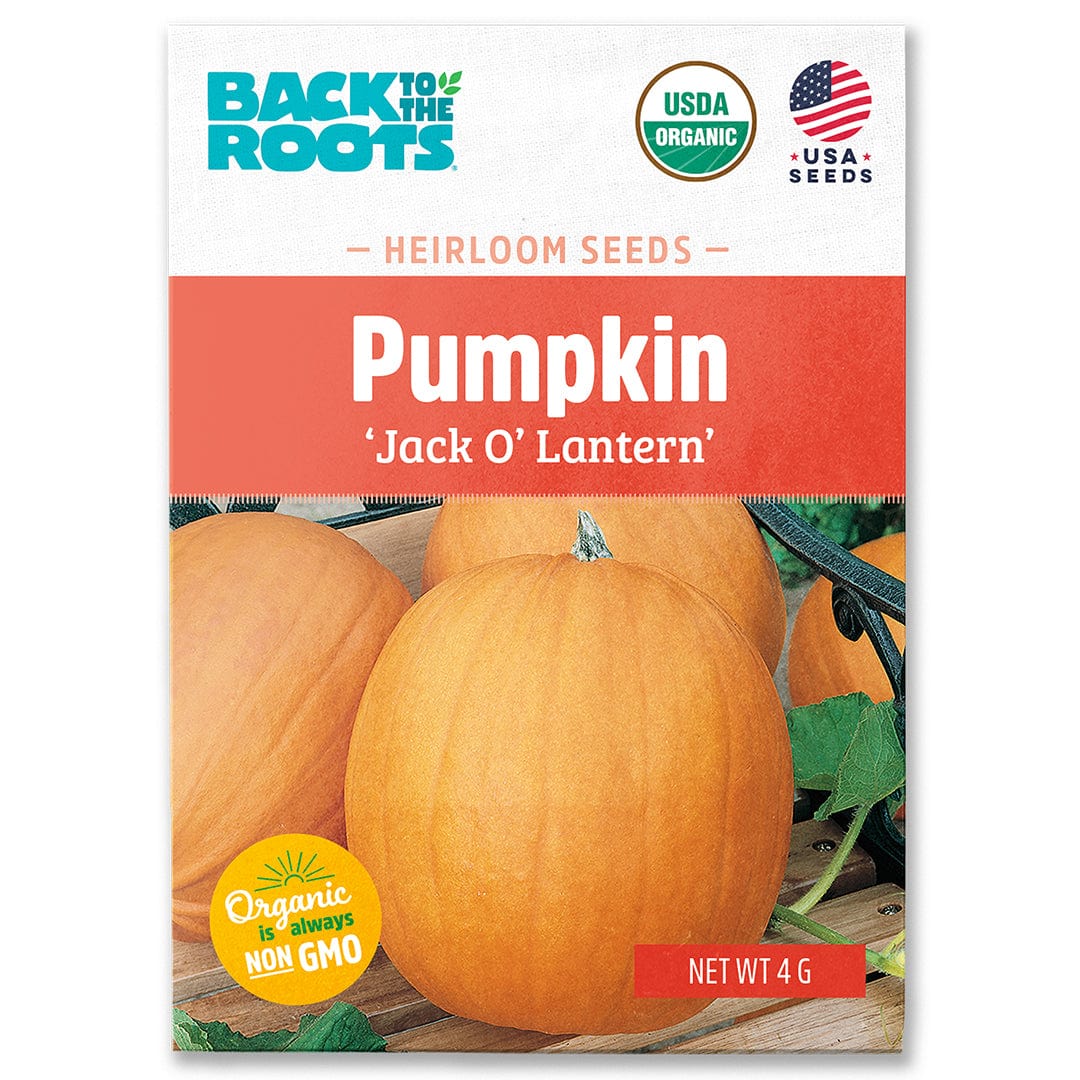
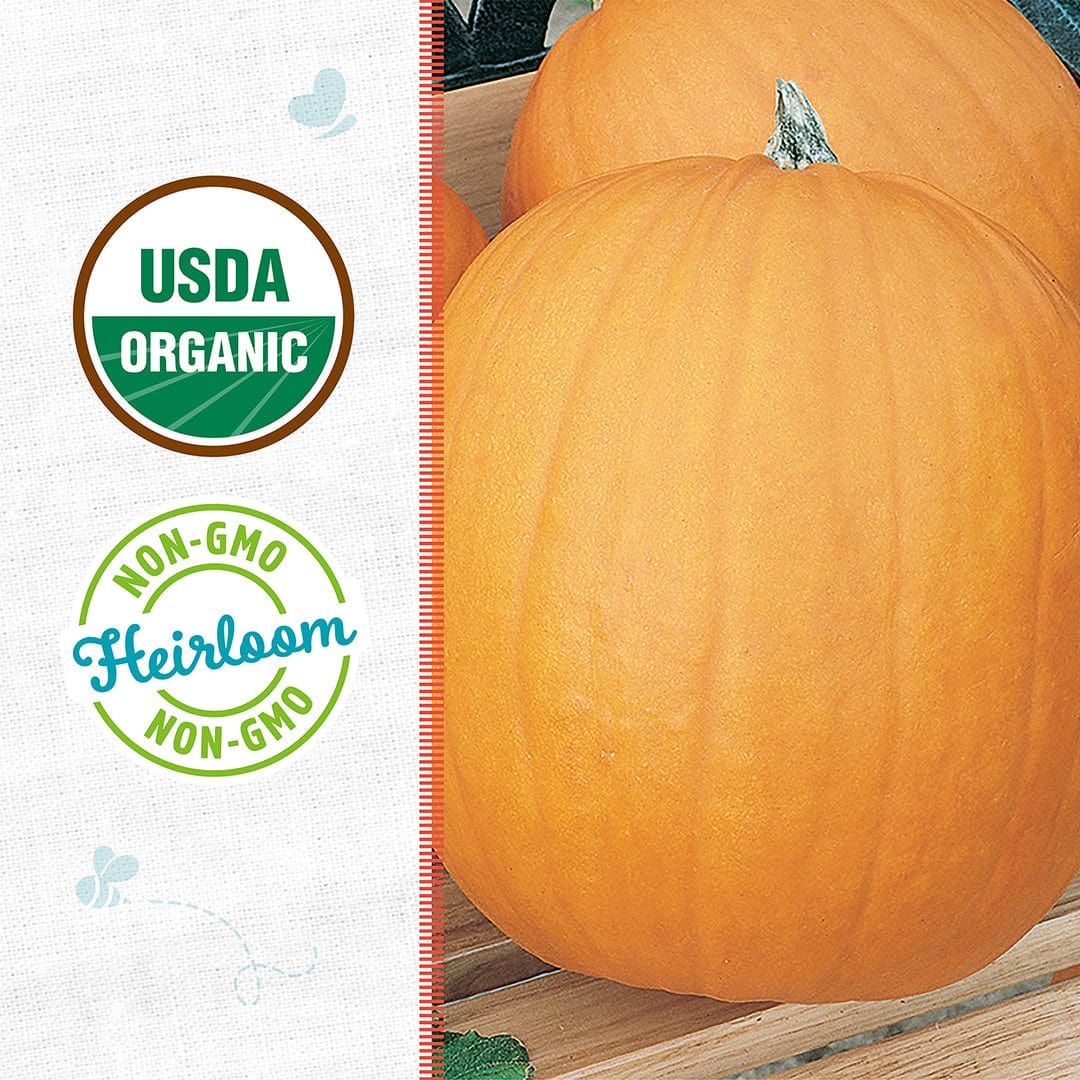
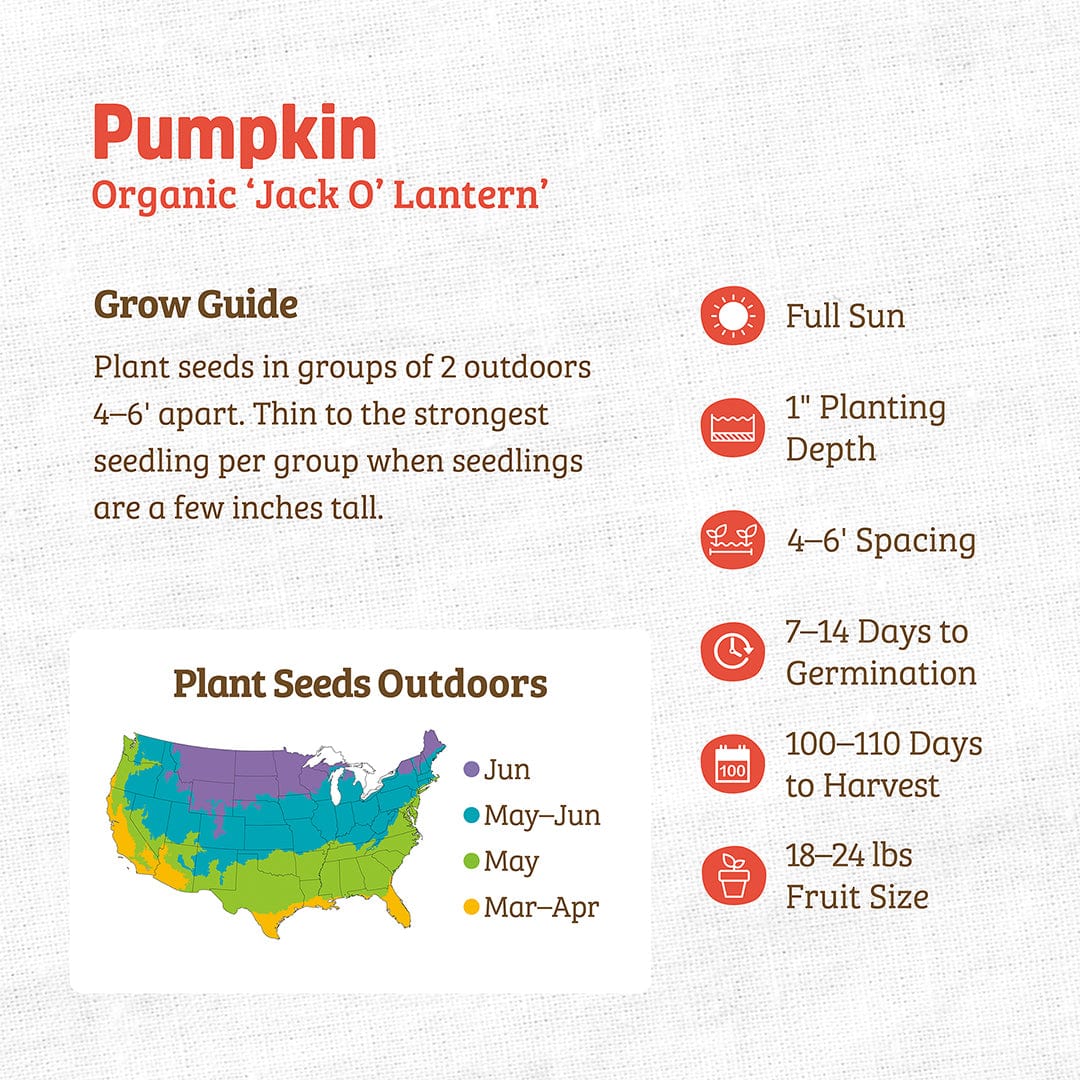
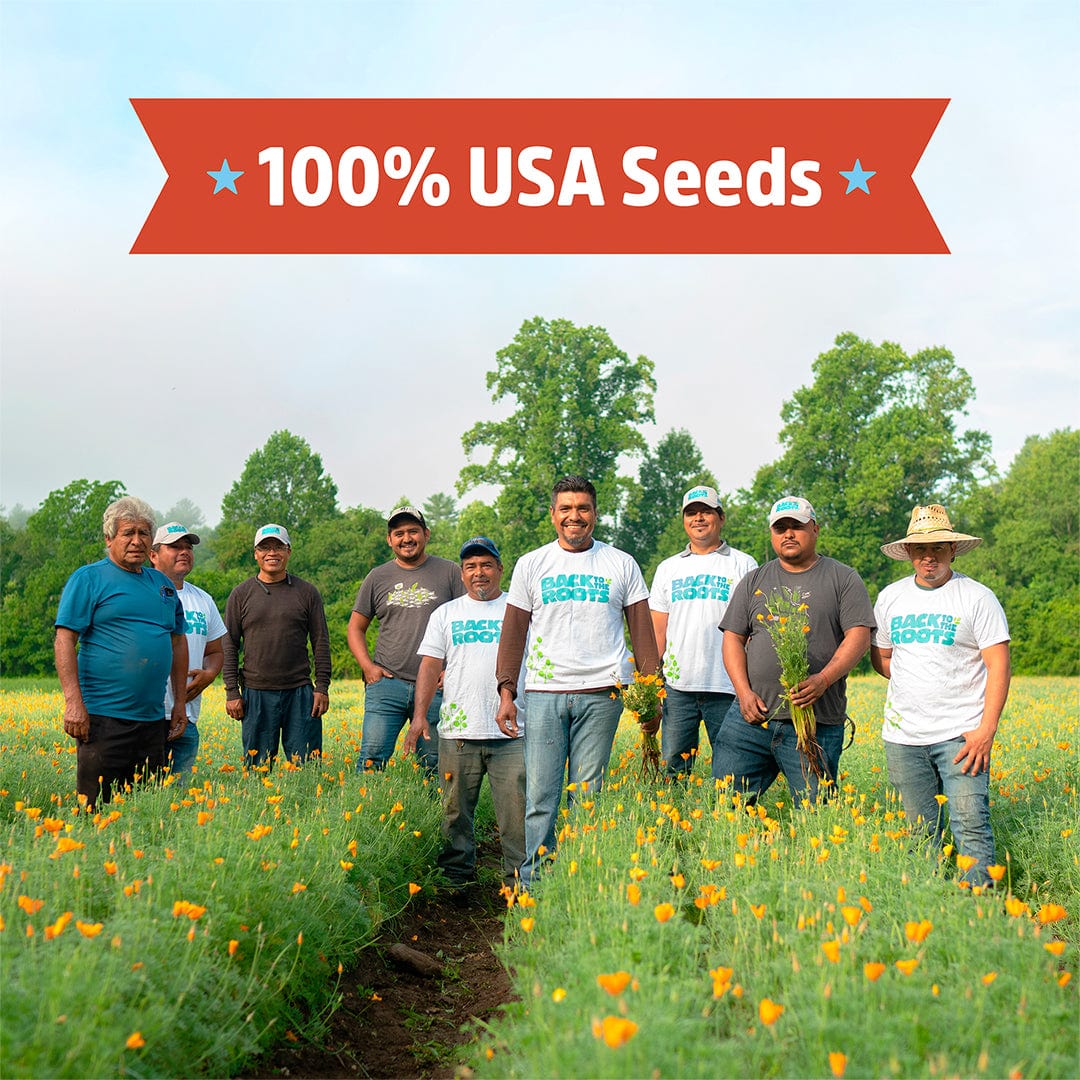
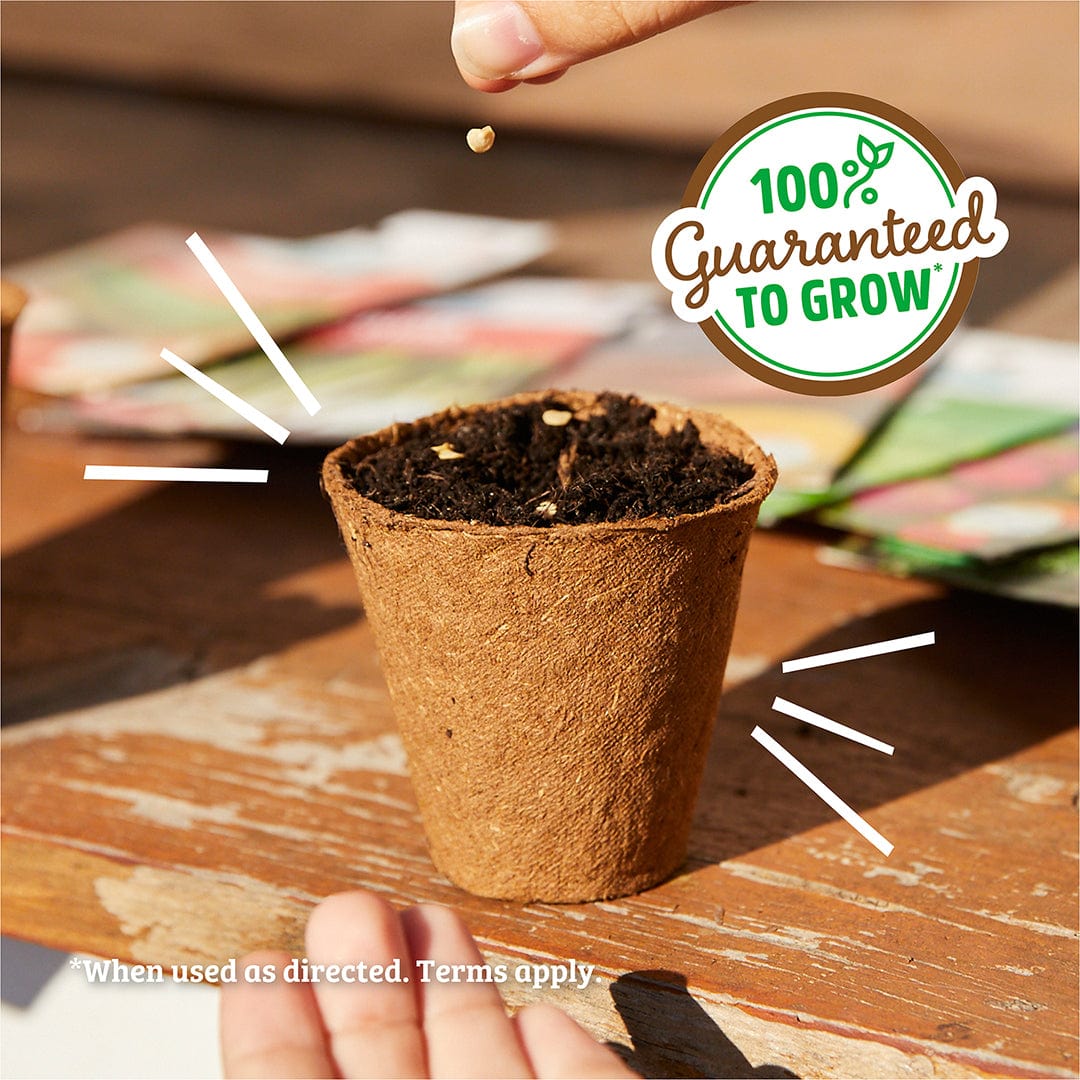
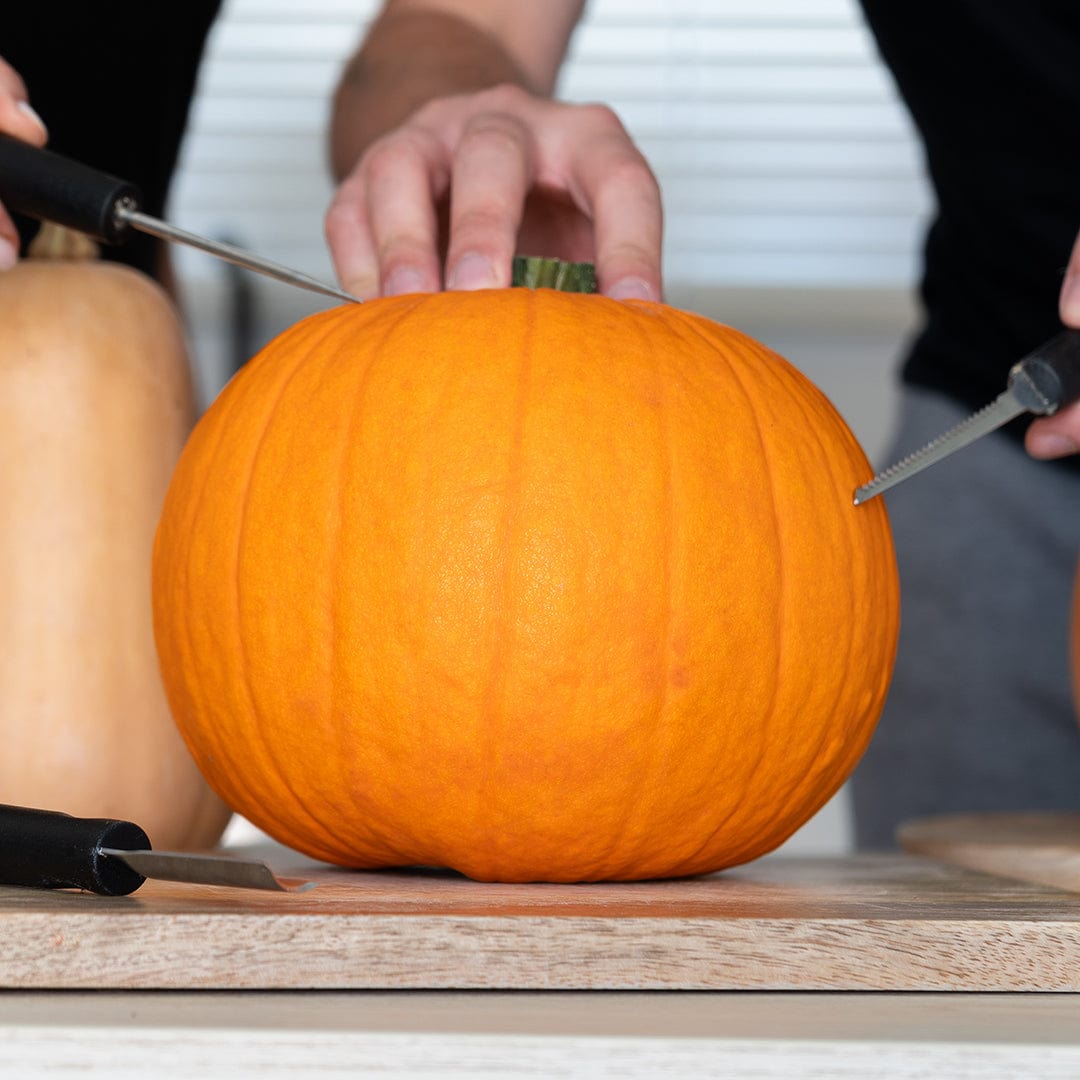
Organic Pumpkin Seeds — 'Jack O' Lantern'
Overview
Treasured for their ease of cultivation, high food production and excellent storage, pumpkins have been a staple crop in the Americas for millennia. Widely known as an iconic Halloween and fall crop, orange-fleshed varieties are rich in beta carotene, antioxidant vitamins C and E, and potassium.
Conditions
Pumpkins require warm temperatures (above 70°F) before planting. For soil, use a fertile well-draining potting mix that’s tailored for vegetables. Add ample compost or manure, as pumpkins are heavy feeders. For best quality crop, provide full sun (6+ hours of direct sunlight per day). Pumpkins also need ample vining space, so plan accordingly.
Planting
Pumpkins are a warm-weather crop with a long growing season that prefer to be planted directly in the garden. Plant seeds in late spring when the soil is at least 70°F and frost danger has passed. Use our grow calendar tool to find specific planting dates for your region! Seeds germinate in 7-14 days.
Plant 4-6 seeds in groupings 1/2-1" deep spaced 4-6 feet apart. Plant seeds in “pumpkin hills” - slightly raised mounds above the normal garden floor. This helps keep soil temperature warmer. Thin to 1 plant per spacing interval after seedlings are established.
Care
Pumpkins are heavy feeders. Regular treatments of manure, compost, or fertilizer mixed with water will sustain good growth. Use a high nitrogen formula in early plant growth, and switch to a high phosphorus fertilizer before the blooming period.
Pinch off each vine end after a few pumpkins have formed. This will stop vine growth and encourage fruit growth. As fruits develop, they should be turned (with great care not to hurt the vine or stem) to encourage an even shape.
Pests and Disease
Common cucurbit diseases include powdery mildew, downy mildew, bacterial wilt, and phytophthora. Avoid problems with adequate soil drainage, good air flow, insect pest control, and crop rotation. If necessary, check with your local Cooperative Extension Service agent for specific control options.
Cucumber beetles, squash bugs, and vine borers are all common pests for cucurbits. Protect young plants with floating row covers. Squash bug eggs found on the undersides of leaves may be crushed by hand. For vine borers, cut out of vines and hill soil over the wound. Keep field borders mowed and remove plant refuse in the fall; spring plow to bury pupae. C. moschata types are less susceptible to vine borers. Insecticides (specifically, pyrethrin sprays) may offer some control.
Harvest
Fruits can tolerate 1-2 light frosts, however, temperatures below 28°F/-2°C can damage fruit.
Pumpkins are ripe when rinds have turned orange and hardened, and a “thump” with your finger feels hard and sounds hollow. Harvest by clipping handles close to the vine. Let the pumpkins cure in the sun for a week prior to bringing indoors or transporting.
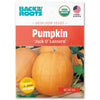
Organic Pumpkin Seeds — 'Jack O' Lantern'
